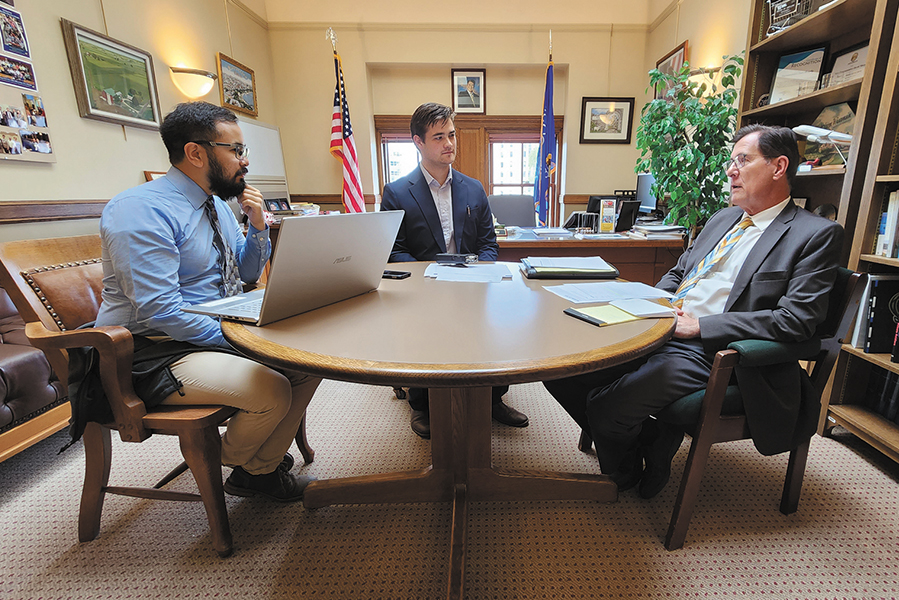Wisconsin legislators are proposing changes to Wisconsin’s financial aid processes that would expand eligibility to more students, thereby increasing affordability and accessibility to students. The two bills (S.B. 380 & A.B. 381) are making their way through the Wisconsin State Legislature and could be sent to the Governor’s desk before the end of the year.
The major changes proposed in the bills include updates to the language on Expected Family Contribution in state statutes to Student Aid Index, repealing a Wisconsin requirement to register for Selective Service, and revising the Wisconsin Grants Program to be more friendly towards students.
A fair portion of the bills are language updates to bring Wisconsin State Law in line with changes from the federal government, which passed the FAFSA Simplification Act that will go into effect July 1, 2024.
The bills received support from the University of Wisconsin System, Wisconsin Technical College System and the Wisconsin Association of Independent College and Universities.
From the ideas that each of these organizations advocated for, the item that may produce the largest impact for students is increasing the 10 semester limit to 12 semesters and removing the half-time enrollment requirement for Wisconsin Grants. The organizations stated that this would provide students who are enrolled less than half-time equal access to Wisconsin Grant funding.
Advancing a bipartisan solution
This bill has garnered bipartisan support amongst members of the legislators. The changes have been moved forward by two Republican lawmakers, Senator Joan Ballweg (R-Markesan) and Representative Dave Murphy (R-Greenville), who authored each of the bills for their respective chambers.
For Rep. Murphy, on a practical level he said this bill would simply just bring the state of Wisconsin in alignment with federal guidelines.
But on an educational level, he wants to increase access for students that are looking to better align themselves with skillsets they think are needed to succeed in the workforce marketplace. He pointed out the need to serve students who are not necessarily looking for a degree, but rather to take classes part-time or gain additional certification that they need to advance their career.
Rep. Murphy serves as the Chair of the Committee on Colleges and Universities, but because of Legislative rules, the bill cannot be referred to a committee that he currently chairs. So, while he can’t say for certain the bill will pass, he said he believes that this could pass overall with the current makeup of the legislature.
“We talk about lack of bipartisanship in public government, but somewhere like 90% of the bills that are brought up have bipartisan support,” Rep. Murphy pointed out.
Last month the State Senate unanimously passed S.B. 380. Last month the State Assembly held a public hearing and referred A.B. 381 to the Committee on State Affairs. At this time, there is no scheduled date for a committee meeting to discuss and vote on A.B. 381.
Opportunities for rural students
For Sen. Ballweg, she also sees this bill as offering a “no-brainer” solution that would benefit all students looking to achieve higher education in Wisconsin.
She also noted that the bill also offered financial aid options for farm and industry short course program students, which is not necessarily the serving the traditional student coming out of high school, but she believes that the system needs to expand education opportunities to innovate rural communities.
“As a rural legislator without a big city UW campus, we still need to have representation… Kids from every district need higher education,” Sen. Ballweg said. “I really think it’s important to have access for everyone in Wisconsin that wants to pursue some form of post-secondary degree.”
Overall, Sen. Ballweg says the proposed changes would create more opportunities for everyone, making Wisconsin’s financial aid programs more accessible to students who are not eligible under the current rules.


























